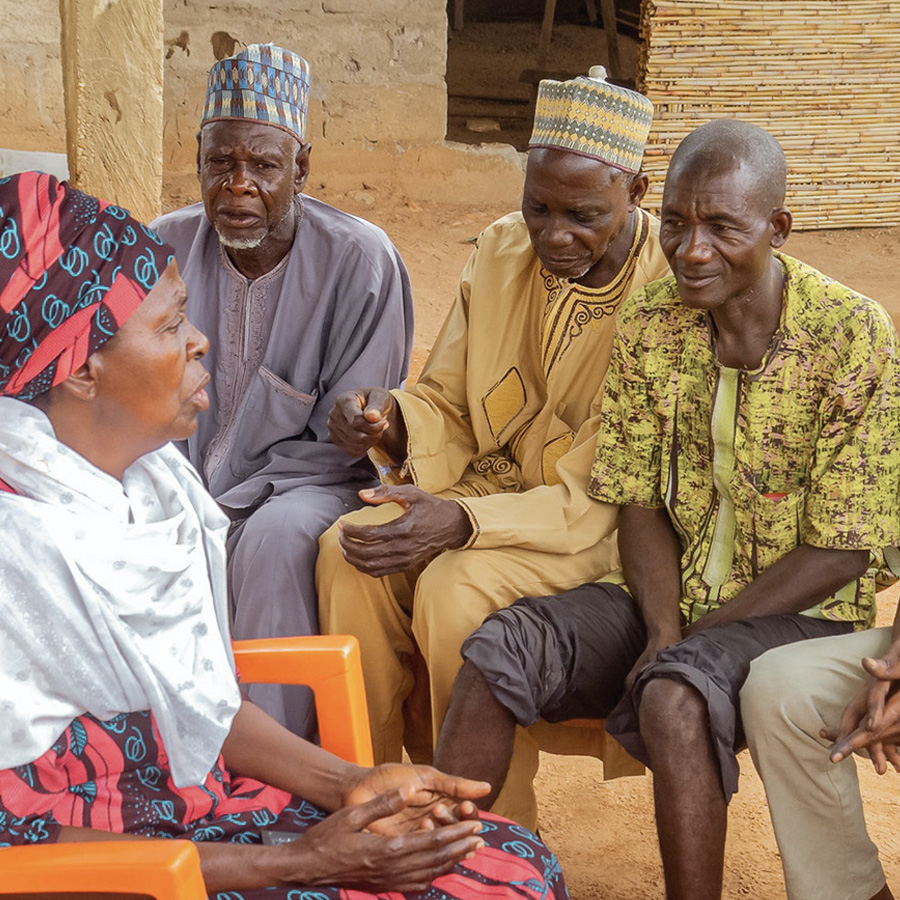Why the 2/3?
Why Spoken Rather Than Written Words
Oral communities rely primarily on spoken means of communication – sharing knowledge and traditions from one generation to the next through verbal communication. This may include stories, songs, poems, and dramas, which are central to their way of life and their preferred learning style. These oral practices are not just methods of communication; they are integral to the identity and continuity of the community. Oral practices are how they preserve their history, values, and collective memory across generations.
READ MORE
To truly engage and support oral communities, many Christian discipleship resources have been designed for literate learners, informed by a Western cultural worldview. This often overlooks the unique needs and preferences of oral cultures, where written text is less prevalent, and learning is predominantly auditory and interactive.
To truly engage and support these communities, it is essential to develop discipleship materials that leverage the power of the spoken word. This could involve creating audio recordings of teachings, incorporating storytelling techniques, and using songs and dramatic presentations to convey messages. By aligning these discipleship resources with the oral traditions of these communities, we can foster deeper understanding, stronger connections, and more effective spiritual growth. Recognizing and respecting the value of spoken word communication in oral communities ensures that discipleship efforts are inclusive, culturally sensitive, and impactful.
Despite the significance of spoken word traditions in these communities, many Christian discipleship resources have been designed for literate learners, informed by a Western cultural worldview. This often overlooks the unique needs and preferences of oral cultures, where written text is less prevalent, and learning is predominantly auditory and interactive.
To truly engage and support these communities, it is essential to develop discipleship materials that leverage the power of the spoken word. This could involve creating audio recordings of teachings, incorporating storytelling techniques, and using songs and dramatic presentations to convey messages. By aligning these discipleship resources with the oral traditions of these communities, we can foster deeper understanding, stronger connections, and more effective spiritual growth. Recognizing and respecting the value of spoken word communication in oral communities ensures that discipleship efforts are inclusive, culturally sensitive, and impactful.
2/3 of the world’s population learns through spoken, not written, words.
If you and nine of your friends made up the world’s population, about seven of you would be oral learners.
Additionally, 3 out of 7 oral learners will
![]() The average oral learner and their family makes less than $1.25 a day. In numerous countries, the poverty level significantly falls below the international poverty line. For instance, in Zambia, the average individual's income is only one-fourth of the amount required to meet this standard.
The average oral learner and their family makes less than $1.25 a day. In numerous countries, the poverty level significantly falls below the international poverty line. For instance, in Zambia, the average individual's income is only one-fourth of the amount required to meet this standard.
![]() Many experience oppression in the form of religious persecution, human trafficking or government corruption. While some individuals grapple with two forms of oppression, many confront all three simultaneously.
Many experience oppression in the form of religious persecution, human trafficking or government corruption. While some individuals grapple with two forms of oppression, many confront all three simultaneously.
![]() When sick, they are unable to access doctors and medical facilities because they are too expensive or too far away. For example, according to the U.S. Agency for International Development, an estimated 70% of the Democratic Republic of Congo (DRC) has little or no access to health care. The total population with access to basic sanitation in the Republic of the Congo is about 21% in 2024.
When sick, they are unable to access doctors and medical facilities because they are too expensive or too far away. For example, according to the U.S. Agency for International Development, an estimated 70% of the Democratic Republic of Congo (DRC) has little or no access to health care. The total population with access to basic sanitation in the Republic of the Congo is about 21% in 2024.
![]() Billions of oral learners haven’t heard of the Bible, or they don’t understand God’s redemptive story through Jesus. Millions still have not even heard the name Jesus.
Billions of oral learners haven’t heard of the Bible, or they don’t understand God’s redemptive story through Jesus. Millions still have not even heard the name Jesus.
There is Hope for the 2/3 in Jesus
